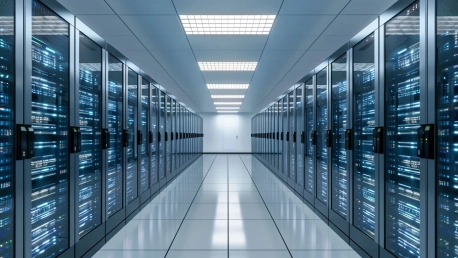As the dawn of generative AI ushers in an era of unprecedented computational advancement, Arizona finds itself at the forefront of this burgeoning tech revolution. The Phoenix metropolitan area, in particular, with its attractive combination of low-energy costs and minimal risk of natural disasters, has rapidly become one of the top US markets for data center growth. This expansion is not just about square footage—Phoenix has witnessed a colossal increase in its data center footprint with nearly 7 million square feet of inventory and an additional 5.5 million in the development pipeline, according to real estate experts at JLL.
The Power-Hungry Growth of Data Centers
The Surge in Electricity Usage
The rise of generative AI technology within these Arizonian data centers comes with a significant increase in electricity usage, as indicated by a report from the Electric Power Research Institute (EPRI). The figures are telling: the state’s data center electricity consumption is expected to double by 2030, potentially accounting for a staggering 16.5% of Arizona’s total electricity usage. This increase is partly due to the fact that AI-driven queries require substantially more power than traditional ones. It’s a trend that’s replicated on a national level, with EPRI projecting that data centers could use up to 9.1% of the United States’ electricity by the end of the decade.
Environmental Concerns and Sustainable Solutions
Yet, this tech-driven thirst for power isn’t without environmental repercussions. One of the less discussed but critical aspects of data centers is their high water usage, needed predominantly for cooling purposes. This presents a clear ecological challenge for the arid regions of Arizona. To address these concerns, the data center industry is pivoting towards more sustainable practices. Innovations in waterless cooling technologies and recycling programs are gaining traction as solutions that could potentially minimize the ecological footprint of these digital behemoths. Furthermore, EPRI isn’t just observing from the sidelines—they’re actively seeking cleaner-fuel backup generators through partnerships within the industry.
Reframing the Economic Landscape
Municipal Assessments and the Value of Data Centers
The city of Mesa and other municipalities are beginning to look at data centers with a more critical eye, weighing the long-term value these facilities bring against their impact on land use and employment benefits, especially when compared to industries like manufacturing. This reassessment recognizes that while data centers are economic engines, they often do not create as many jobs per square foot as manufacturing facilities might. It’s a complex equation that local governments must solve, finding the right balance between technological progress, employment opportunities, and responsible land use.
Continuation Amidst Local Concerns
Arizona stands poised at the cutting edge of a technological leap powered by generative AI, leading a tech surge that’s reshaping its landscape. Central to this thrust is the Phoenix area, an emerging tech hub favored for its economical energy prices and scant natural disaster risks. These factors have propelled Phoenix into the upper echelons of US data center hotspots, with the city experiencing a monumental expansion in its data center capabilities. Real estate specialists from JLL highlight that Phoenix’s data center realm has swelled to an immense 7 million square feet, along with a further 5.5 million square feet under development. This rapid expansion signifies more than just an increase in physical space. Phoenix’s transformation mirrors the global race towards technological dominance, with Arizona strategically leveraging its geographic and economic advantages to draw the future of tech innovation to its desert landscape.









